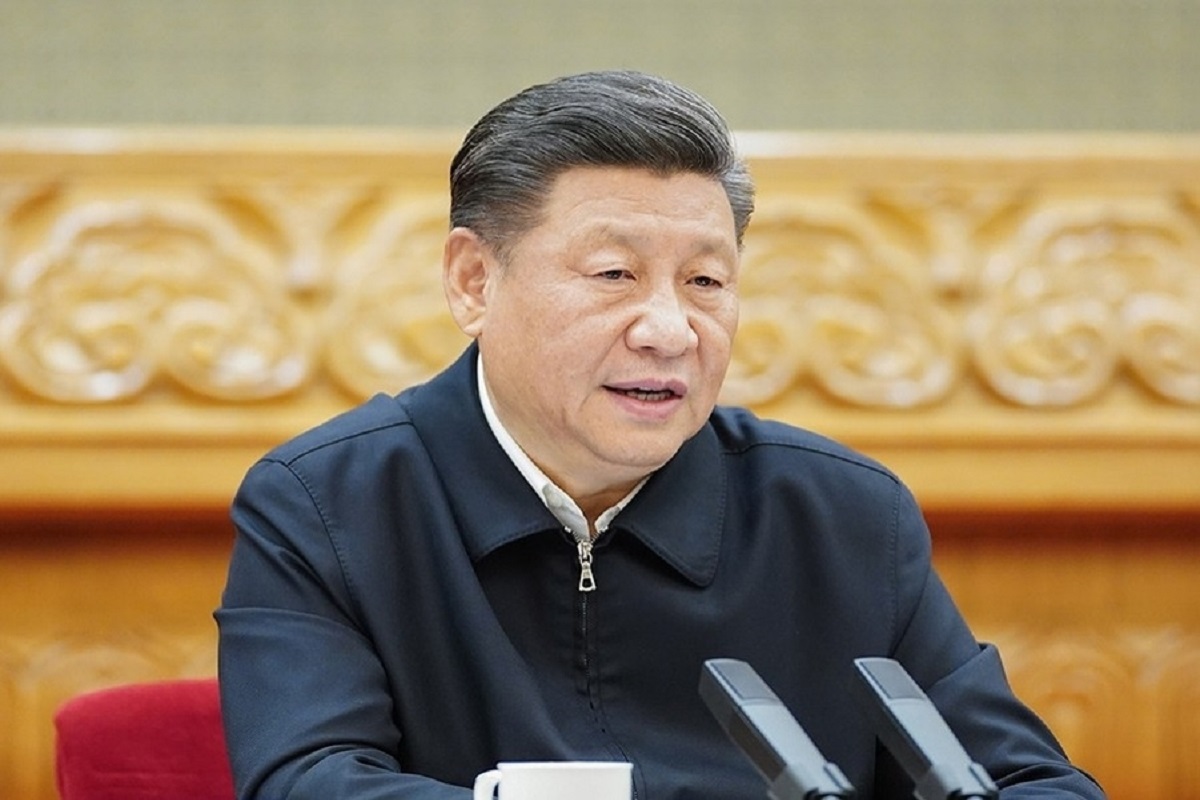PM spells out India’s position on China
I n a recent interview to Newsweek, the Prime Minister, discussing Indo-China relations, commented, “For India, the relationship with China is important and significant.
The partnership to monitor regional waters and provide $50 billion in infrastructure assistance announced at the Quad Summit has the potential to seriously undermine China’s influence in the Indo- Pacific.

Xi wants Chinese army to focus on military might, achieve goals by 2027(Photo: IANS)
The fact that Beijing decided to fly its combat jets in a joint drill with Russia near Japan even as the Quad Summit was underway in Tokyo on Tuesday is the clearest sign yet that China is not only fuming at what it sees as attempts to curtail its footprint in the region but is also jittery about the planned manner in which the USA and its Asian allies are going about thwarting its ambitions in the Indo-Pacific. Those sympathetic to Beijing say that the Quad, and now the newly launched Indo-Pacific Economic Framework for Prosperity (IPEF), are nothing more than over-hyped talking shops. Policymakers close to the ruling communist party in China have been making regular appearances on global television channels to mock the ineffectiveness of these “paper tiger” groupings, comparing them ~ to their disadvantage ~ with organisations such as the RCEP (Regional Comprehensive Economic Partnership) which comprises Association of Southeast Asian States (ASEAN) member-states and their Free Trade Agreement partners including China and the three Asia-Pacific members of the Quad: Japan, India, and Australia among others. The agenda laid out in Tokyo is making Beijing nervous, and with good reason.
The partnership to monitor regional waters and provide $50 billion in infrastructure assistance announced at the Quad Summit has the potential to seriously undermine China’s influence in the Indo- Pacific. The unveiling of the Indo-Pacific Partner- ship for Maritime Domain Awareness (IPMDA) is expected to make it difficult for China’s massive fishing fleet to continue illegal fishing across the region. Add to this the effort to bridge infrastructure gaps and the agreement to adopt a collective approach to cyber-security, and the regional balance of power which had hitherto been heavily tilted in China’s favour could possibly be on its way back to a more even keel. The Indian Prime Minister rubbed it in, as it were when he said: “Coordination in areas such as vaccine delivery, climate action, supply chain resilience, disaster response, and economic cooperation despite the difficulties posed by the Covid-19 pandemic are ensuring peace, prosperity, and stability in the Indo-Pacific region.”
Taking aim at China’s debt diplomacy, Quad leaders made a commitment to strengthen the capacities of countries in need to cope with debt issues under the G20 Common Framework and by promoting “debt sustainability and transparency”. Providing an alternative to Beijing’s signature Belt and Road Initiative, thus, seems very much on the Quad’s agenda. Naturally, none of the Quad leaders mentioned China by name but it is blindingly clear that the grouping is finally showing signs of beginning to walk the talk. Nearly all the initiatives emanating from Tokyo are aimed specifically to counter China’s tactical moves and strategic game plan. Well begun is half done.
Advertisement
Advertisement